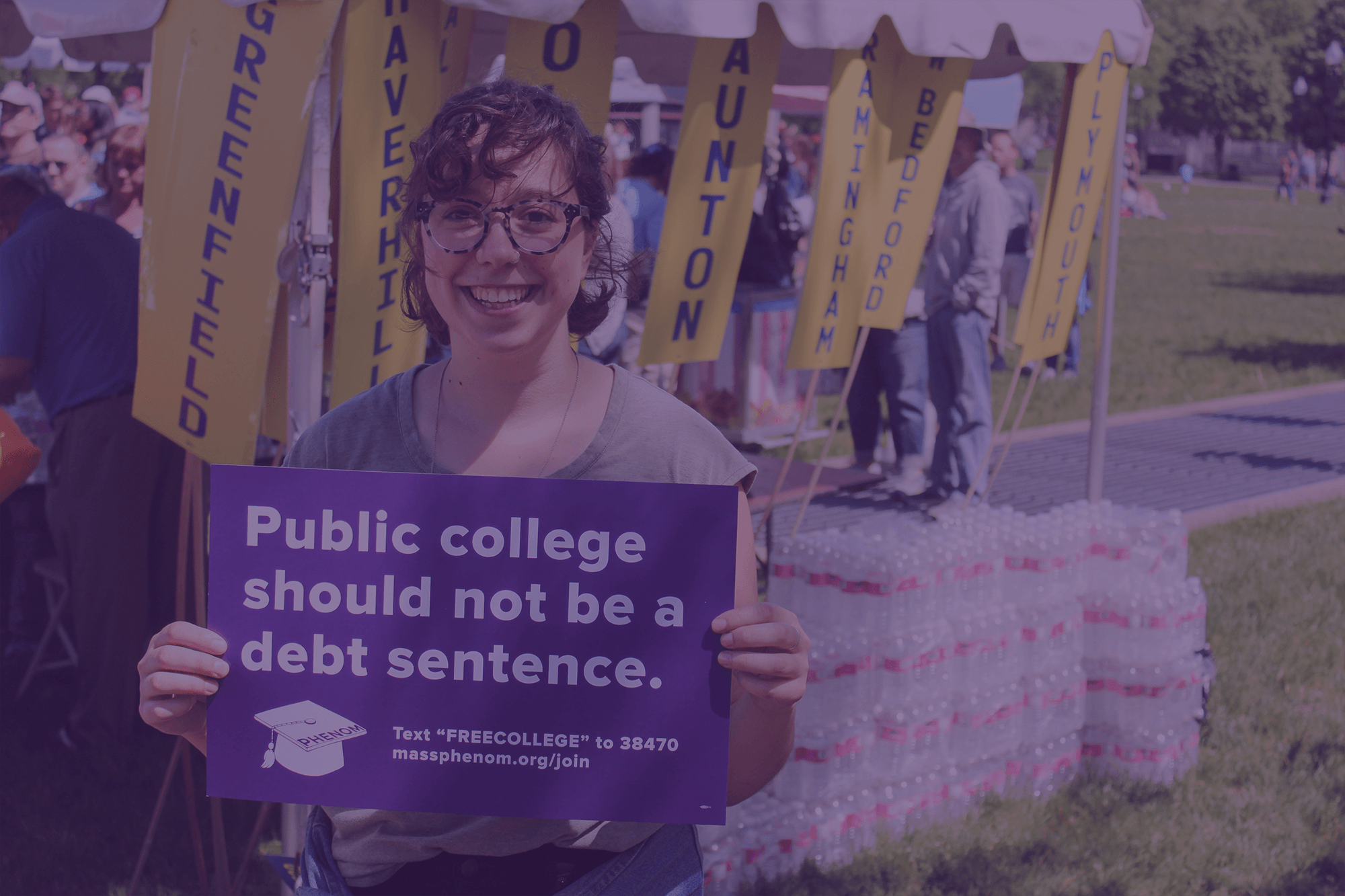But growing costs and debt make public college unaffordable.
Photo: Rally for Public Education on May 20, 2017. (Zac Bears/PHENOM)
Massachusetts is the first state in US history to have over 50% of residents with bachelor’s degrees, according to a report released today. But with the cost of public colleges and universities growing quickly and student debt ballooning, what does this mean for students and families?
Today’s report from the Massachusetts Budget and Policy Center shows that a four-year, bachelor’s degree is the key to fair wages and a job that can support a family in Massachusetts, but only half of the population has a four-year college degree. That means that half of the residents of the Commonwealth are being left out of economic growth, and state lawmakers aren’t making it any easier to get a degree.
This year, tuition and fees will go up on most of the 29 public college and university campuses. That stems from yet another year of state budget cuts to public higher education, amounting to a 31% cut per student since 2001, increasing tuition and fees by thousands of dollars.
PRESS COVERAGE
The Boston Globe: “Massachusetts grades out as most educated state in US”
Boston Business Journal: “More than half the state’s workforce now has a bachelor’s degree, study says”
Washington Post: “Report: Half of Massachusetts’ labor force holds bachelor’s degrees”
(Published by Associated Press, ABC News, WTOP, Boston Herald, WBUR, NBC Boston, US News and World Report, Minneapolis Star Tribune)
“The bachelor’s degree has become the new high school diploma if you want a job that pays you fair wages,” Zac Bears, executive director of PHENOM, said in the Boston Globe. “People see this as the only way to provide for their families, and they’re not wrong.”
Vicki Dzindzichashvili, a UMass Boston graduate and PHENOM board member, tells her story in the Boston Globe. She started college after high school, but couldn’t afford it. She went to work for five years before going back and getting her degree from UMB, nearly tripling her wages.
“If you don’t have a degree, you’re just essentially prescreened out,” said Dzindzichashvili. “It was almost like a leapfrog kind of thing, having checked that one box. … Now the four-plus years of managerial experience I had could be leveraged because those jobs almost always require a degree to go with the experience.”
“Now more than ever, with the growing costs and massive student debt burden, we need to go back to a system where everybody can afford to go to a public university,” Zac Bears said in an Associated Press story published by the Washington Post.

